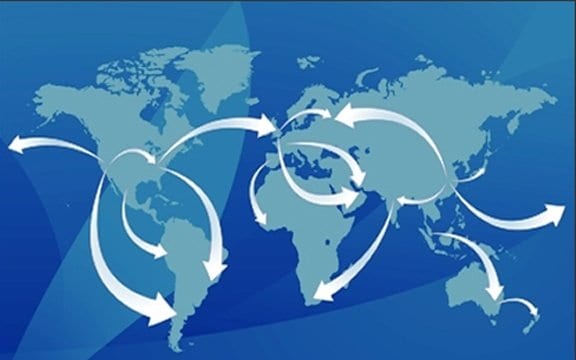
For the purpose of the Export Administration Regulations, export can be defined as such: (a) an actual shipment, transfer, or transmission of goods or technology out of the United States; (b) a transfer of goods or technology in the United States to an embassy or affiliate of the controlled country; or (c) a transfer of goods or technology to any person either within the U.S. or outside the U.S. with the knowledge or intent that the goods or technology will be shipped, transferred, or transmitted to an unauthorized recipient. Here at American Crane and Tractor Parts we take export compliance seriously to protect not only ourselves, but to protect our customers and our customer’s customers.
A road map to export controls can increase flexibility in production and minimize the risk of exposure to penalties that may effectively cripple a company’s operations. To succeed in the global marketplace, compliance with United States export laws must be a priority.
You may be wondering why there are such strict export controls. What purpose do these regulations actually serve? They enable legitimate global trade in U.S. goods and technology while keeping these items out of the hands of developers of weapons of mass destruction and terrorists. It protects the United States economic interest. Export Control promotes development in all parts of the world while upholding international agreements and protecting foreign policy interest.
In order to protect our country’s foreign interest there are some countries that have been embargoed. In casual conversation, the words ‘embargo’ and ‘sanction’ are often used interchangeably. But when it comes to drafting a contract or assessing the viability of an export opportunity, failing to use the correct word can have serious consequences. Generally, both terms describe government measures that prohibit individuals and entities under the jurisdiction of one country (not necessarily just its citizens and companies) from engaging in trade or transacting with those of another.
Historically, an embargo refers to a complete ban on all commercial activity between two nations, while sanctions are more limited in scope and prohibit trade in certain types of goods or transactions with particular individuals and entities. In fact, sanctions are described by some as a ‘partial embargo.’ However, an embargo to one person may not be an embargo to all. A prime example of a country with a specific sanction is Iran. There is an embargo on U.S. goods going to Iran UNLESS you export medical and dental «devices» or foodstuff. Next, consider North Korea where most people would say we also have an embargo. U.S. entities ARE permitted to make financial investments in North Korea. Who knew that? The same however, is not true for Iran. Each country has its own specific unique set of sanctions.
Due to the political nature of sanctions and the fact that they are used by the United States government as diplomatic tools to influence the behaviors of other nations, they are constantly changing in regards to the ever-evolving geopolitical landscape. So it is wise to avoid including lists of specific countries in your contracts. If sanctions against a particular country are lifted while the contract is still in effect such outdated language could potentially complicate a party’s plan to enter a new, attractive market.
It is extremely easy to get lost in the mass amount of text and regulations that go into export compliance and control, which is why we make it a priority to know it inside and out. We strive to remain current on the ever-changing export compliance regulations. However, we are definitely not the experts on the matter. If you have any questions regarding export regulations you should contact Immigration and Customs Enforcement or check the website, http://www.export.gov/regulation.



